We caught up with the brilliant and insightful ViMaDeAn Duo a few weeks ago and have shared our conversation below.
ViMaDeAn Duo, thanks for joining us, excited to have you contributing your stories and insights. Learning the craft is often a unique journey from every creative – we’d love to hear about your journey and if knowing what you know now, you would have done anything differently to speed up the learning process.
Anastasia: My music path wasn’t a smooth one but I am grateful for it because it made me go through certain things myself, learn from it and now to be able to share my experience with the next generation of musicians.
I wish that I would have learned more about sport psychology back then since this is an essential knowledge for musicians in my opinion. Musicians are very complex creatures: we combine creative spirits of artists but we also have a lot in common with sportsmen since we convey our musical ideas with the help of our body.
I am glad that topics of peak performance, stage anxiety and sport psychology are being brought to the attention of young musicians more often since I believe that this helps to raise a new generation of well – balanced artists. As an active concert violinist myself I see an increasing demand for the discussion of effective performance preparation and successful performing experience. Throughout my career I dedicated a lot of attention to this matter by taking Psychology classes at Yale University and by working directly with leading peak performance coaches. Experiencing myself the powerful outcome of mindful work on this important subject, I often address peak performance challenges in seminars and masterclasses, and I see valuable results of this initiative in my students’ performances and their practice process. Back in the time when I was a student myself, there was still a strong perception of a good classical musicians being perfect, nature-born flawless talent and it was not a common thing to talk about your vulnerabilities. So I believe that speaking about all this helps to create a healthy mental environment for the musicians and help them to open up and grow.
I also wish that back when I was a student, I learned about entrepreneurship as it is such an important matter for the artistic people. I was raised with the belief that you just have to play well and as a result you will have a great career, but we can clearly see that nowadays a musician has to not only play well but to also have a great communicative skills and to be able to put his or her name out there.
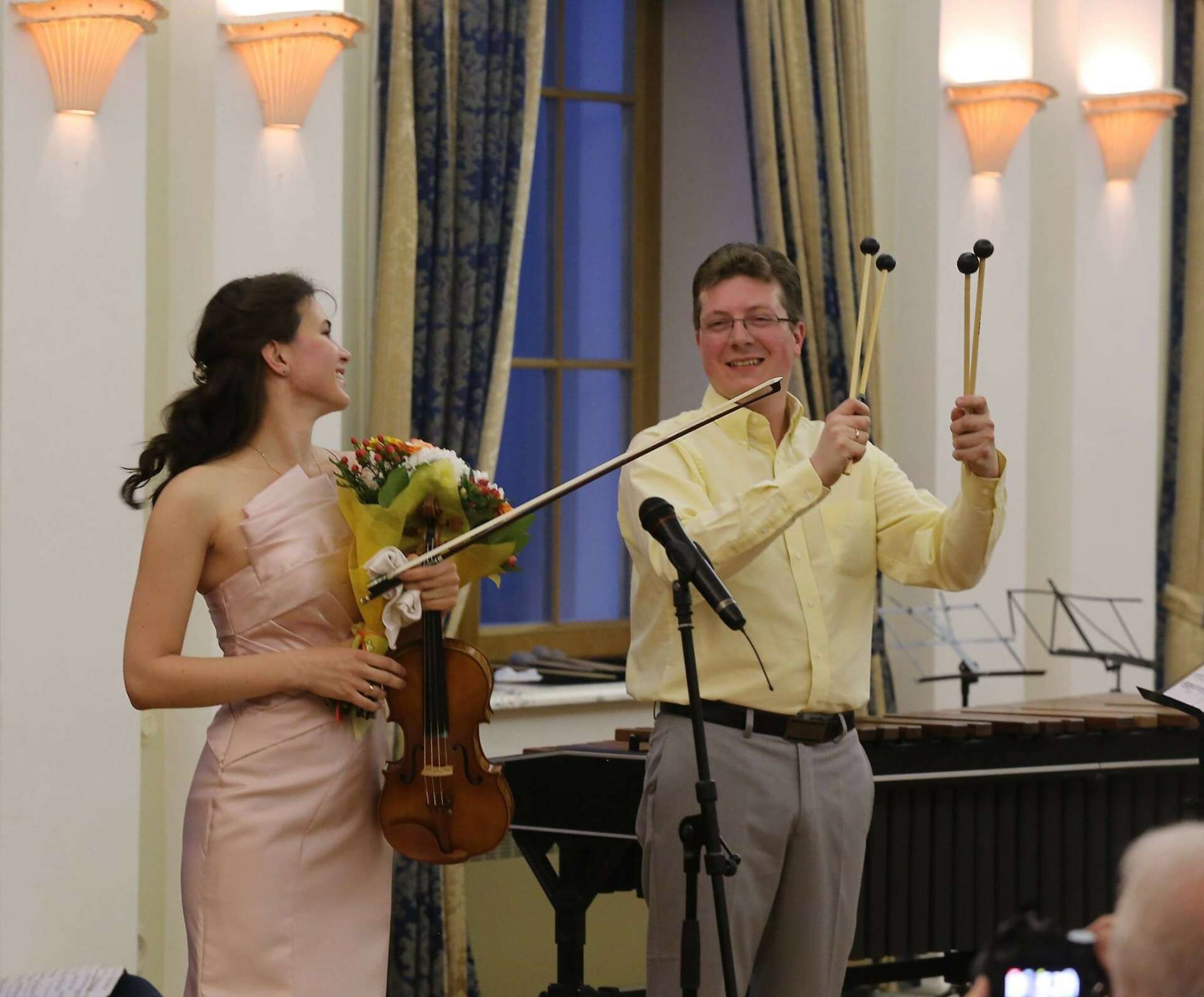
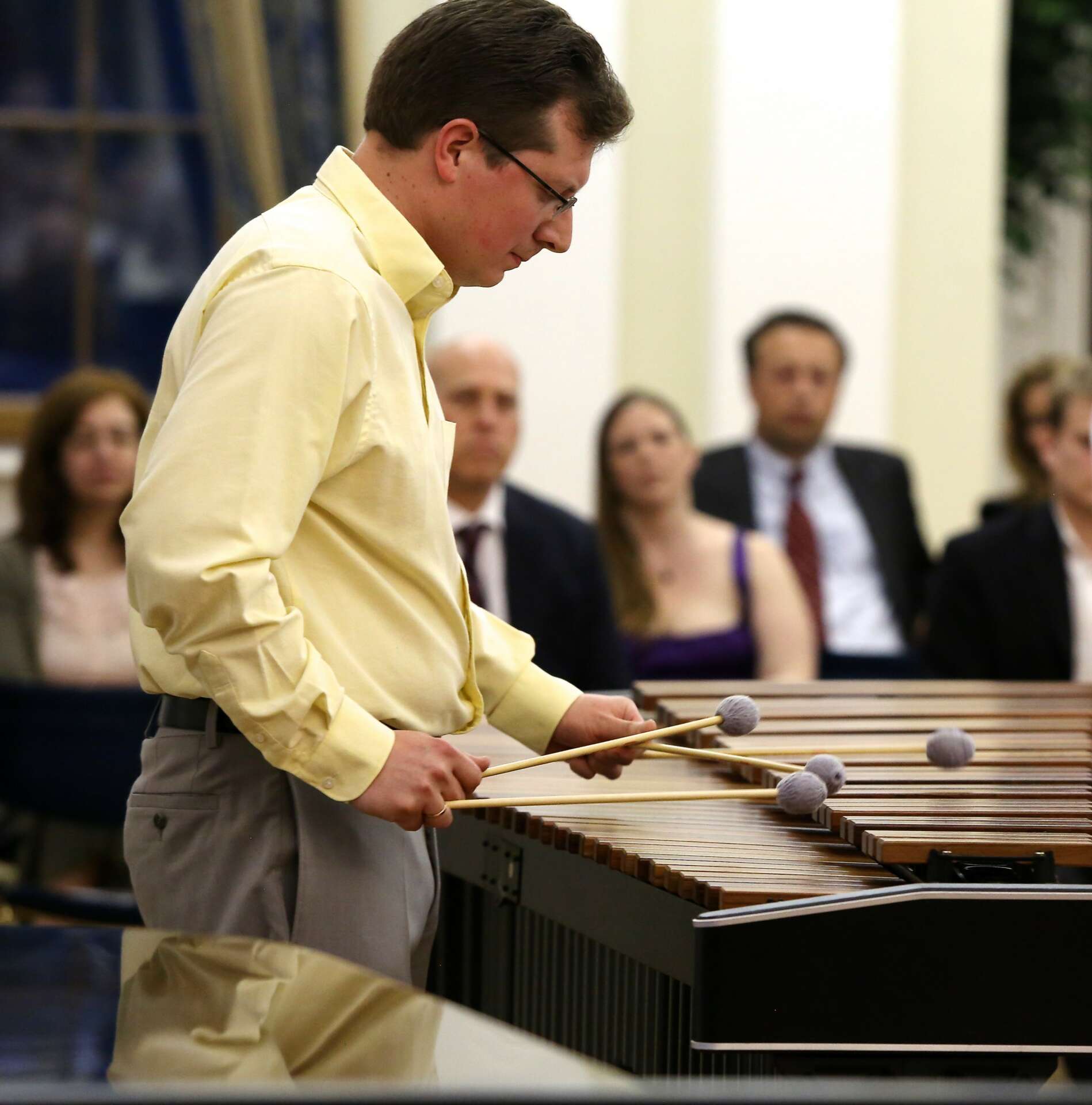
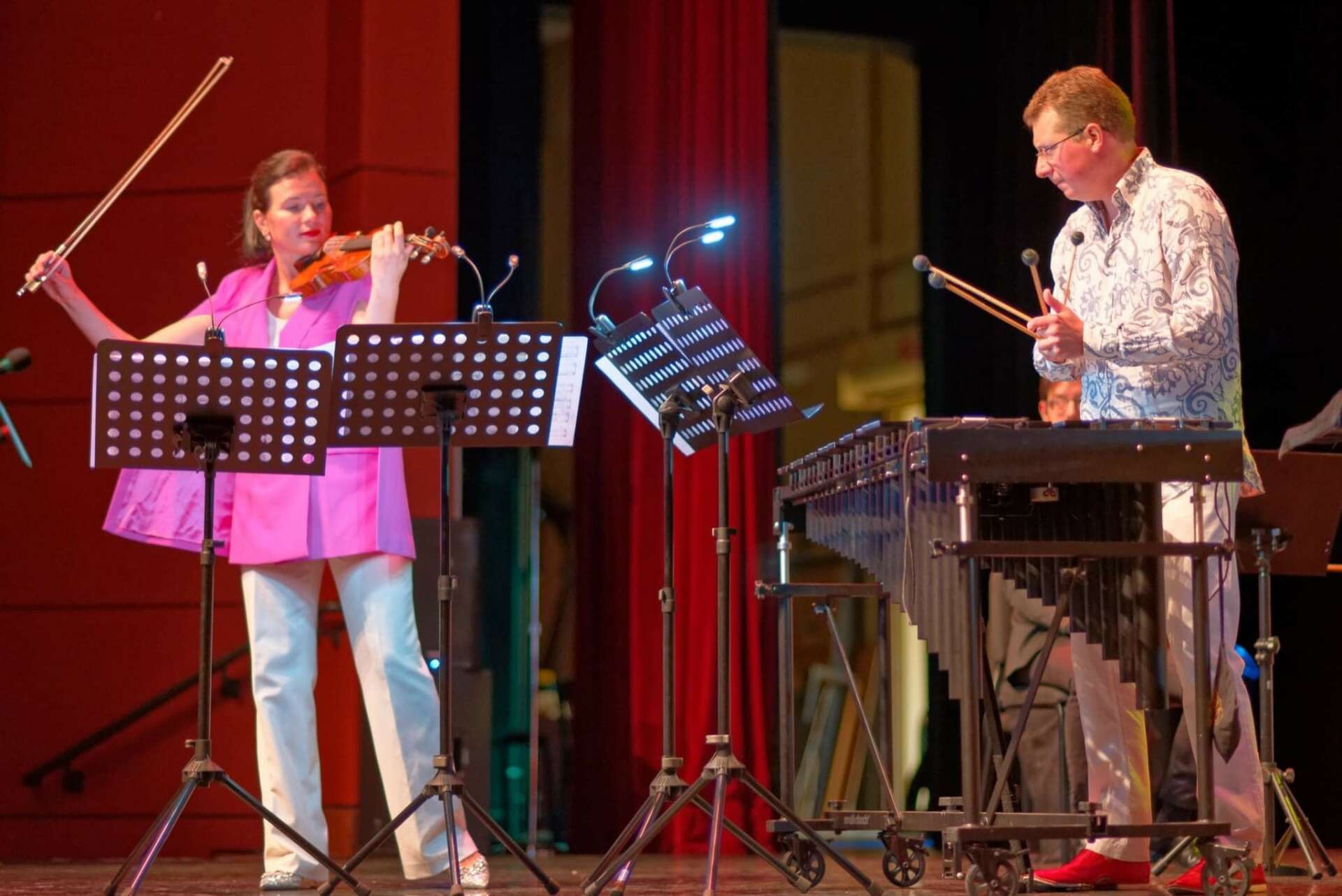
What did your parents do right and how has that impacted you in your life and career? Maybe you can share a story (or stories) that illustrate the things they did right and the impact they had on you and your journey.
I believe that being a parent of an artistic kid is a challenge itself. There are so many things that go into nurturing a young talent and even more things that can go wrong along the way. It also requires a lot of patience since it’s a lengthy process and an everyday commitment both from the child and parents. Being a teacher myself, I totally agree with the prominent violin professor Peter Stolyarski who once said: “I don’t need talented kids, I need talented parents”.
Since my parents aren’t musicians, they have always diligently followed the instructions given them by my music teachers: how much exactly should I practice, what should I read, etc.
When I was 12 years old, I had a challenging experience at a music competition where I didn’t advance to the next level due to some backstage politics. As a result of this extremely emotional event, I stopped playing the violin seriously for almost a year doubting whether I should continue being in the music field at all.
Seeing how passionate I was about music and advised by teachers that I had the abilities to become a professional musician, my parents never forced me about making a choice of my future career. At that time I was genuinely interested in English literature and psychology and if not music, these paths would have been open for me. I still remember the day when it was getting closer to the time when I had to make a decision about going to a music college. We sat down together with my parents and they said they would support any decision of mine, be it a music or something else. They let me make my own choice and I am forever grateful for that.
My parents also supported me when I made a decision to quit my Bachelor’s degree in our little town in Kamchatka one year before the graduation and decided to move to Moscow to start that same degree all over again with another teacher at the prestigious Moscow Conservatory College. Not only this, but letting their only child move to a big city on her own also must have been a difficult decision for them but my parents supported me once again.
Being an artist is a wonderful but quite challenging life path and in my opinion only those who could fully accept all the obstacles along with all the joy it brings should go into this career. Having supportive parents by your side makes a dramatic difference for an artistic soul and I’m truly grateful I’ve had that privilege.
Are you happier as an artist or creative? Do you sometimes think about what it would be like to just have a regular job? Tell us the story about the last time you had that thought.
I’ve always wondered what it would be like to have a regular non-music job. Sometimes I would find myself on a subway gazing at dressed up men with briefcases around me, imagining being one of them having a “regular” life and a “regular” job. This thought would enter my mind especially during the nights and weekends when I had to work/perform while my friends were out enjoying their time off.
Unexpectedly, life granted me a chance to experience what it would be like to have a regular job; in 2010 I was offered an administrative position in one of private schools in Moscow. It was a good offer and the job seemed appealing to me. I accepted the offer and started a new chapter of my career along with continuing to work as a freelance musician.
I was excited to dive into the new world of being a part of a regular office life with new duties and challenges and the first several weeks of learning about my new “regular” job went by really fast. Soon enough though, I discovered that I was missing my ongoing stage experience/excitement and the style of life I was used to as an artist since my childhood.
I started to look for opportunities to switch back to a music job again and one year later I had a full time job as a principal timpanist of one of the leading symphony orchestras in Moscow.
I am grateful that I had a chance to go through that experience. Without it I would always wonder what my life would be like if I had a regular job. It helped me to realize that being an artist is my happiest state and I wouldn’t trade my current artistic life for anything else.
What’s been the most meaningful project you’ve worked on? And why?
Denis: Anastasia and I are currently working on an environmental project called ‘Based on Actual Events’ which is a creative collaboration with several composers around the world. Each of them is writing a composition which will be a composer’s reflection on an environmental topic. Next year we will be releasing a CD and we are very excited about it.
All the pieces are turning out great but as a percussionist I am particularly excited about the piece which our dear friend and my Curtis classmate Sheridan Seyfried is writing for us. It’s called ReValue and instead of typical percussion instruments like vibraphone or marimba, I will be playing reused materials that would otherwise have been destined for the landfill or the recycling bin. The message will be clear: there is the potential for beauty and utility in materials we would otherwise discard, but we need to harness human creativity and will power. With the success of this piece, we aim to catch the attention of percussionists around the world, who could recreate it using salvaged materials of their own and perform the piece, saving materials from the landfill and, just as importantly, broadcasting a strong message about conservation.
Creating this percussion setup was a fun process of going through the recycled materials and picking different items from them to create instruments to play on. After a long search, Sheridan and I came up with a selection of instruments which included metal pipes and I had to cut and tune them myself, a shaker of dried beans in a soda can, glass bottles, wine glasses, wooden slats, plastic buckets and a plastic water tank. This is a beauty of collaborating on a new composition with the living composer: you are working together on finding new sound combinations and crystallizing your joint idea. ‘Based on Actual Events’ will make a meaningful contribution to the field of mixed chamber music repertoire. There is a lack of one for violin and percussion, and therefore this project will greatly enrich the repertoire with compositions written on this important topic.
This project is meaningful to us because it reflects our values and we are also excited that the composers involved in this project share these values. It was important for us to have a creative group of people united by the the same vision in order to create and deliver our message and we hope that the listeners of this CD and concert program will feel it.
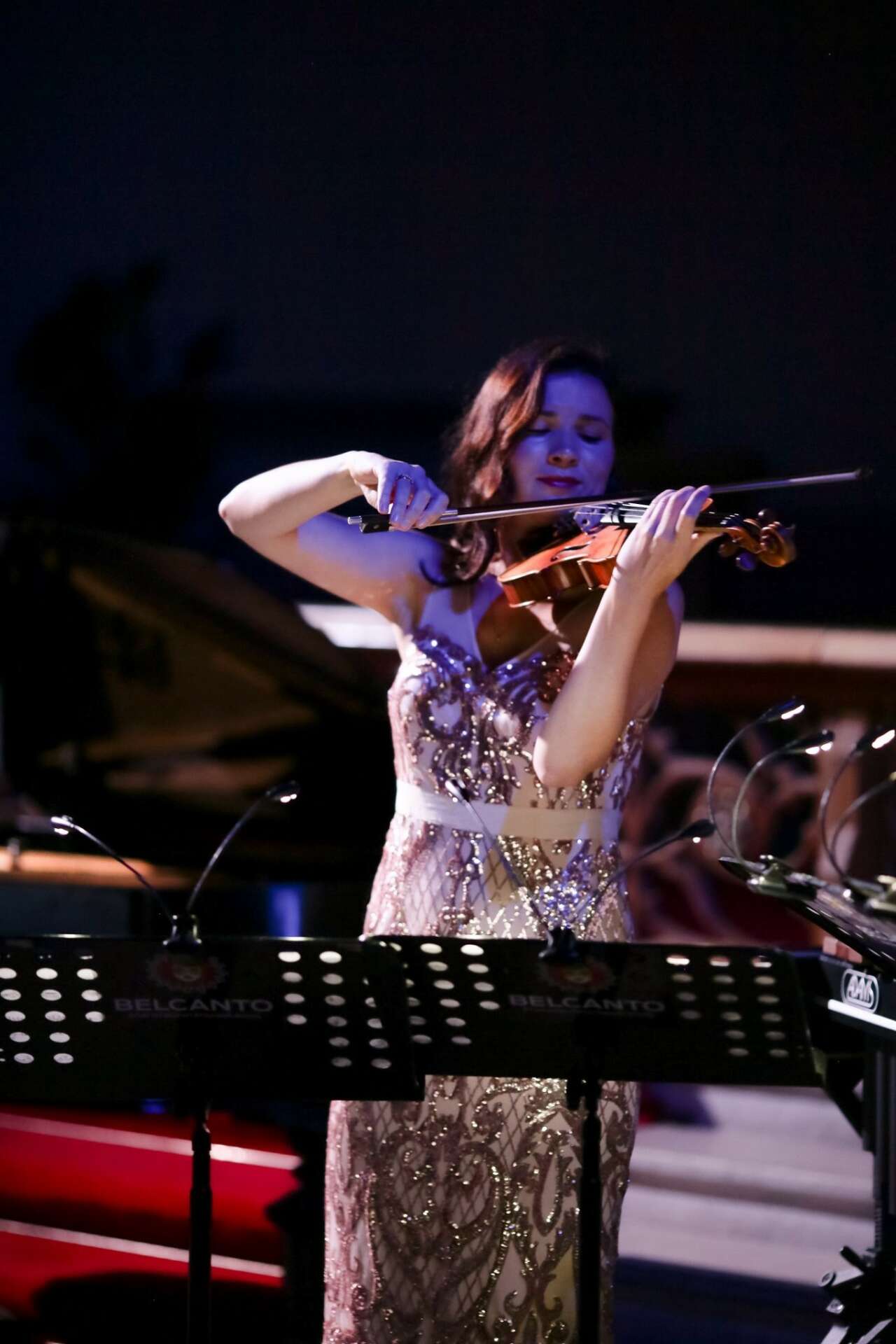
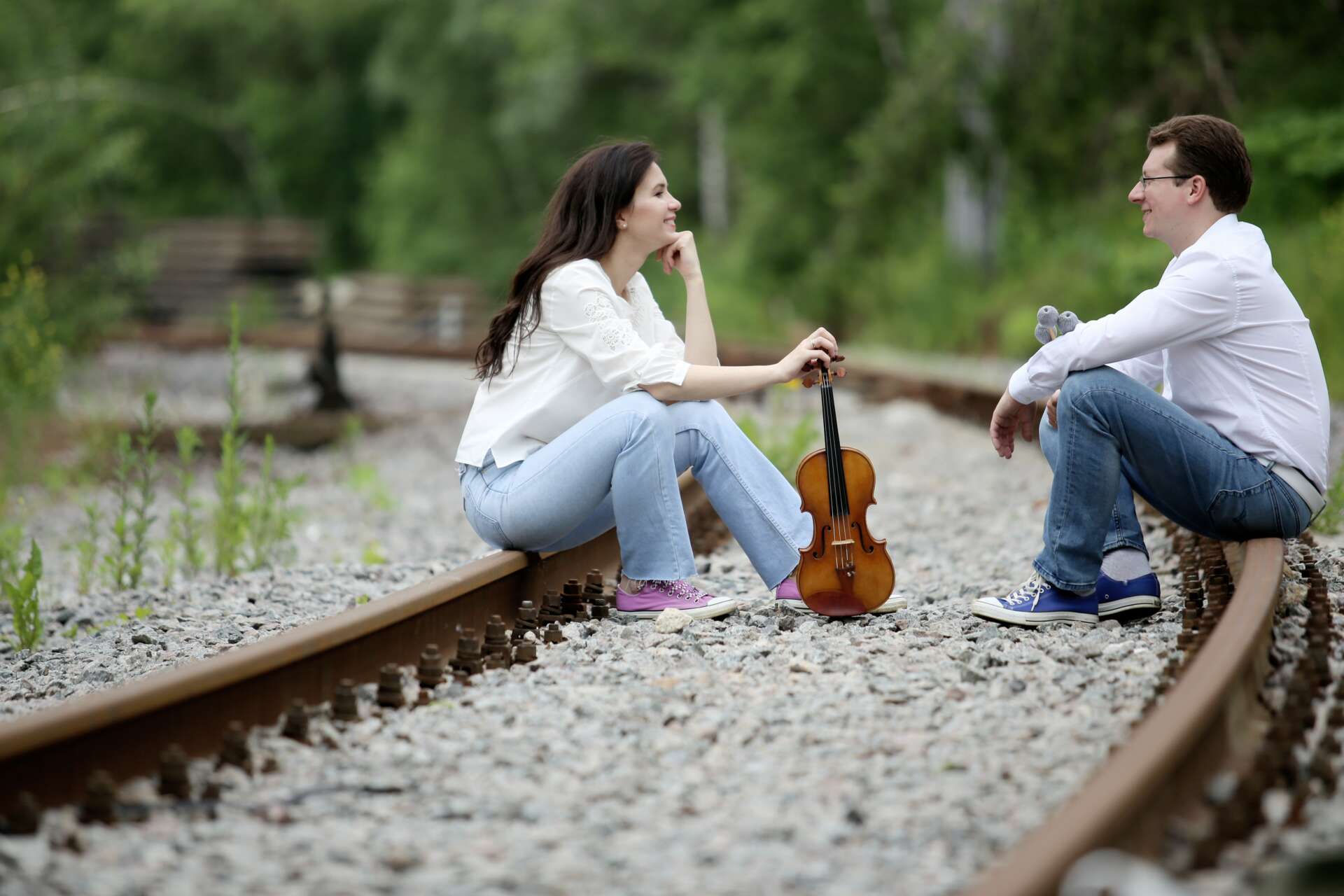
Contact Info:
- Instagram: vimadean_duo
- Youtube: ViMaDeAn Duo
Image Credits
Emil Matveev Ksenia Kazakova Dmitry Pavlovsky


